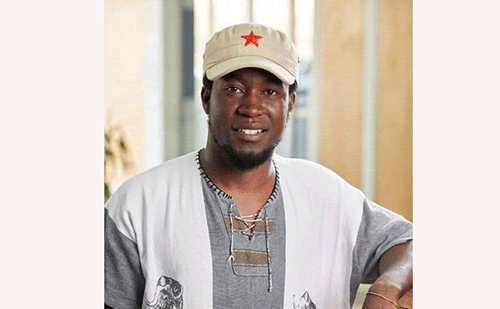In 2006, I enrolled for my first degree at the University of Namibia. The Dean of Students was current higher education minister Itah Kandjii-Murangi. Because of my high school student leadership background, I took keen interest in student politics. In that year, there was a thorny issue of compulsory breakfast, where the university charged students even when they did not eat breakfast.
The matter was serious to an extent that there were attempts by student activists to block others from entering the dining hall. The matter divided the Students Representative Council (SRC) while outside the SRC, a group called the ‘Concerned Group’ (CG) emerged, led by Wise Immanuel and Archie Shipanga, as drivers of the protest action.
Kandjii-Murangi unsuccessfully sought to liquidate the matter. Part of the SRC succumbed to her whims while the other remained sympathetic to the CG. With the SRC divided and weakened, the CG quickly filled the leadership vacuum. As a first-year student, I was mesmerised by the CG mobilisation abilities and activities.
Their strategies and tactics made it easy for us to join the cause. Seeing that the SRC lost the moral control of the students, Kandjii-Murangi abandoned the captured SRC faction and started holding meetings with the CG. The following year, the CG’s Wise Immanuel became SRC president under the Kandjii-Murangi supervised election.
At the end of 2008, I was elected SRC president ahead of her preferred candidate. We held the SRC together and resisted attempts to capture or divide it as was the case in 2006. As SRC president, I sat on the university council. Kandjii-Murangi also sat on the council but only as an observer.
She wanted us to first pass through her before we made our submission to council. We rejected her sanitisers and made our organic submissions to council. When we discovered that the dean’s office was utilising funds from the SRC budget vote without our knowledge and consent, we managed to remove her as a signatory to our accounts for the remainder of 2009.
She left the university in 2015 for parliament and eventually cabinet. I excavate this 16 years history to make a simple point that minister Kandji-Murangi’s character has always been underpinned by three things: first, her inability to stand above problems and intervene as a leader – she instead entangles herself into the problems effectively becoming the problem.
She is always part of a faction sometimes operating underground on behalf of the faction. Second, she has demonstrated an incredible ability to switch sides based on a balance of forces. She has a greater propensity to cross the floor to a faction with currency. Third, she hardly finds trouble in deviating from the rules to quench her thirst.
She took these attributes to the government. Despite several challenges, the higher education sector was relatively stable before her arrival. Like she did with the SRC, she sought to put former Namibia University of Science and Technology (NUST) head Tjama Tjivikua into her handbag.
When it did not work, she crossed the floor to the anti-Tjivikua faction. Tjivikua’s letters circulated in which he complained about being pressured to employ Kandjii-Murangi’s relatives at NUST. She sought to make NSFAF, a student fund, privilege a Malaysian institution ostensibly linked to her family. When Hilya Nghiwete, then CEO, started displaying a desire of escaping from the minister’s handbag, Kandjii-Murangi reunited with Wise Immanuel, who gave her ‘wise’ strategies.
Nghiwete was removed as CEO but was later reinstated by the court. Resultantly, NSFAF now pays both Nghiwete and the acting CEO. As CEO of the Namibia Training Authority (NTA), Jerry Beukes jumped out of the minister’s handbag to have peace of mind. He resigned before his contract ended. It is said the minister wanted the T-Vet billions. Like NTA’s Beukes, Eino Mvula, then CEO of the National Commission for Research Science and Technology (NCRST), resigned to escape the handbag and uncouth instructions.
The minister actively entangled herself in the NUST vice chancellor contest that ended up in court. Years later, NTA, NCRST and NSFAF remain with CEOs. Higher education is the most unstable sector since independence.
This chaotic state of affairs always meant that the higher education sector is without strategic direction. The one who is supposed to give direction is caught up in determining who should supervise cleaners. Our country is left behind in terms of international higher education developments.
No one is aware of the minister’s thoughts on the repudiation of coloniality of knowledge, translational research or developmental pedagogy. South Africa’s higher education minister recently announced plans to build two new universities and other post-school education and training infrastructures.
While she participates in stifling academic freedom at our universities, her counterpart in Zambia is advancing the principles of academic freedom, including the recent hosting of the National Symposium on Academic freedom.
Professor Amos Murwira, Zimbabwe’s higher education minister, has presented a vision to prepare the country for Education 5.0 as a problem-solving and value-creation mechanism. It is doubtful if Kandjii-Murangi is aware of Education 5.0.
More troubling is the complicity of President Hage Geingob in Kandjii-Murangi’s dealings. When one recalls how Geingob stood by Katrina Hanse-Himarwa, Sacky Shanghala, Peter Vilho and Bernhard Esau until the 90th minute, it emerges clearly that we must be prepared to live with Kandjii-Murangi shenanigans until 2024.
That Kandjii-Murangi corruptly removed qualifying candidates after passing interviews and replaced them with persons residing in the same household to lead and deputise each other at the public entity, with Geingob’s knowledge, should not be surprising. Kandjii-Murangi enjoys Geingob’s adoration.
But Namibians must be consoled that these mediocrities only have two more years. Sometimes it gets worse before it can get better. Let us start the rebuilding higher education conversation to be found prepared.


